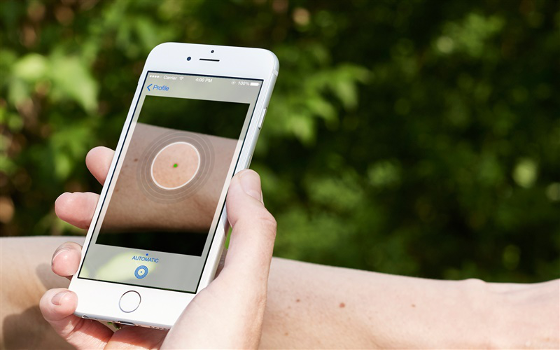Across the world, more than one billion people are at risk of developing skin cancer at some point in their lives. Helping them prepare is a selected group of dermatologists. For example 10,000 in the US and only 550 in the UK. SkinVision’s new algorithm will help provide people with a means to assess moles for risk indication on demand to save time and lives. Users can download the app for free and can perform a number of free assessments as well.
There is a seamless connection between users and their doctors to monitor skin lesions with a personal archive that can be used as reference during visits, saving time and improving efficiency for dermatologists.
"Our mission is to empower people to early detect skin cancer, which is highly important for possible treatment options," says SkinVision founder and CEO Erik de Heus. "We aim to save 250,000 lives in the next decade."
Melanoma is a type of skin cancer that forms in the cells responsible for skin pigmentation, known as melanocytes. Although it is less common than other forms of skin cancer, it is much more aggressive. In the United States alone, melanoma accounts for more than, 10,000 of the 13,000 deaths caused by skin cancer each year. Research shows that 5,4 million non-melanoma skin cancer cases are identified every year in the US.
SkinVision has now expanded its remit to identify and alert people to these non-melanoma cancers, like BCC and SCC cancers, too.
"Our new algorithm can recognize nine in every 10 cases of deadly skin cancer," de Heus continues. "This is because our latest research shows 88 per cent sensitivity towards melanoma skin cancer. Our work has been scientifically tested in the leading dermatology clinic at Ludwig-Maximilians-Universitat Clinic in Munich, Germany."
SkinVision is available for both iPhone and Android (Samsung S4 and up only for now) here. The app can be used worldwide except in the US, although the company indicates it will be arriving there soon.
For further information, please visit:
http://skinvision.com
About SkinVision
SkinVision is a Dutch health startup based in Amsterdam. SkinVision's newest algorithm helps health conscious people to identify Basal Cell Carcinoma (BCC) and Squamous Cell Carcinoma (SCC) skin cancers, as well as more aggressive melanoma varieties.
